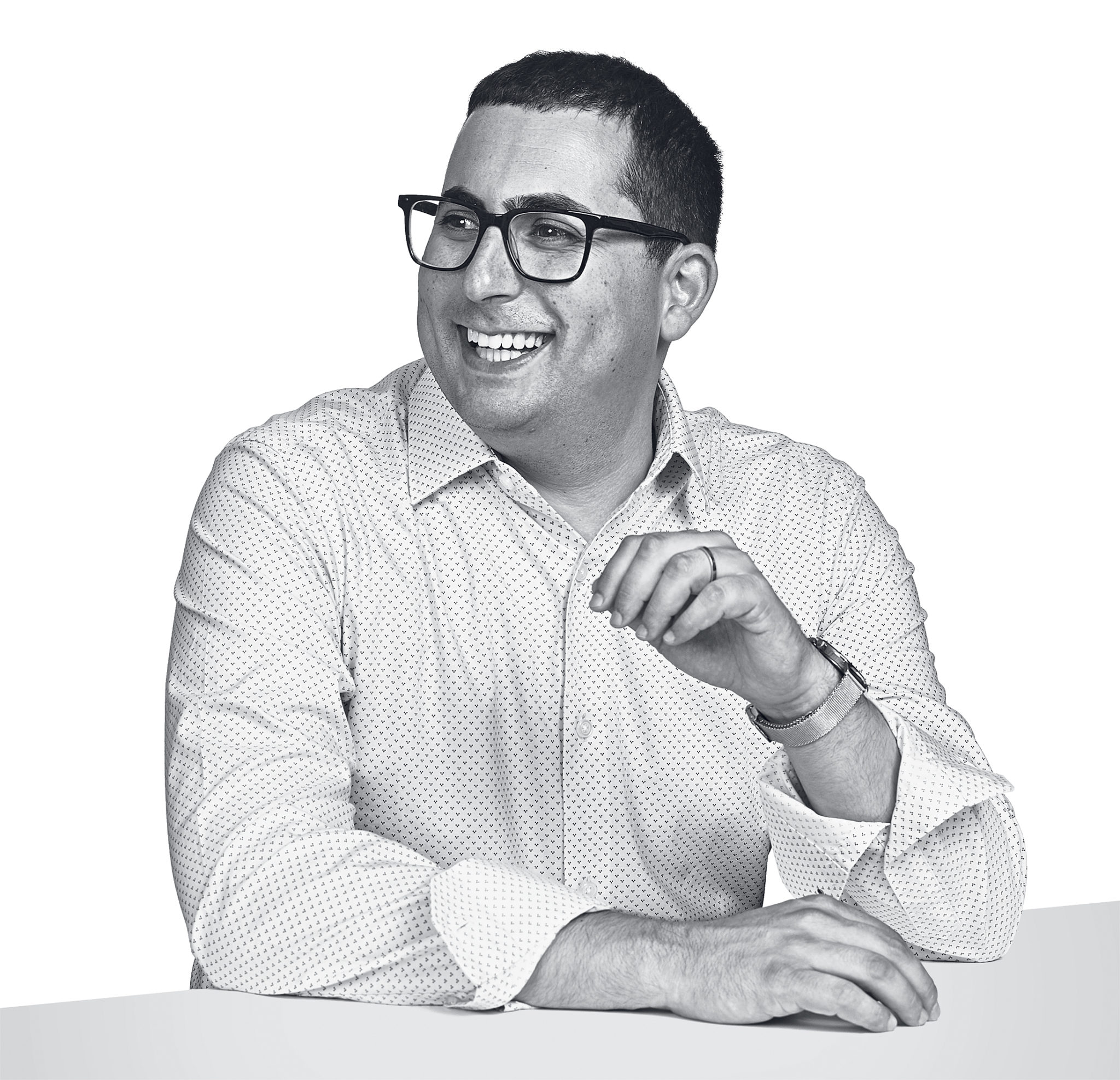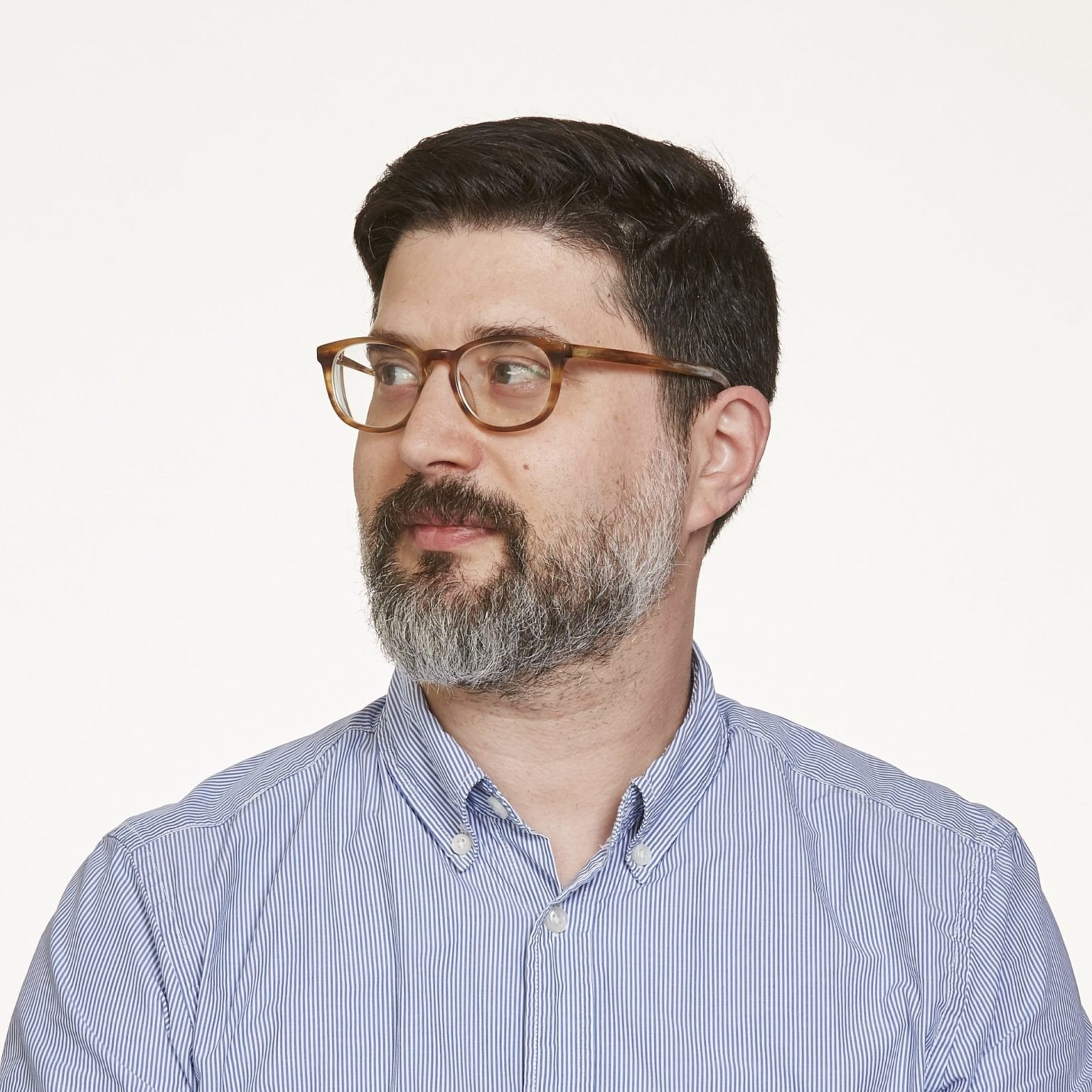There hasn’t been a Republican on the DC Council for almost a decade, and Michael Bekesha wants to change that. Running his long-shot campaign from a rented desk at a WeWork near his home in Navy Yard, the attorney is trying to unseat incumbent Charles Allen to represent Ward 6, which stretches across Capitol Hill, Shaw, and Navy Yard.
Republican candidates in local DC races have typically positioned themselves away from the national conservative operatives who happen to be based here. Not Bekesha: When not holed up in his coworking HQ, he’s an attorney for the conservative organization Judicial Watch, which has made a point of going after Robert Mueller. But he says that in policy terms, he’s running as a different kind of Republican—a necessity in a city where only 4 percent of voters opted for Trump in the 2016 election. “I’m socially progressive but fiscally responsible,” Bekesha says, settling into a sofa in a WeWork conference room. What does that mean in the context of local government? And can he possibly win?
Is this really the moment when DC Democrats are going to embrace non-partisan politics?
Having an R next to my name is going to be tough, but I knew that when I went into it. I’m very much unhappy with the direction of the national party. It’s become a party of personality. It wasn’t that. It shouldn’t be that.
What do you mean by a party of personality?
Either you’re for him or against him.
Oh, it’s a party of one personality.
It’s become the party of Trump. I was not a supporter of President Trump. My concern is that the party of ideas that I grew up knowing is going to be gone.
So come January, are you going to be sworn in as a council member?
I mean, I wouldn’t be doing it if I didn’t think I had a chance. I really think there’s a path to victory. It’s going to take a lot of hard work. But everybody talks about kitchen-table issues—what’s important to Ward 6 voters. That’s schools, it’s crime, it’s traffic; unfortunately, it’s rats and sometimes mosquitoes. Those really shouldn’t be partisan issues. People just want new ideas. Right now, there’s no one pushing to hold anybody [in the District government] accountable. That’s because it’s a one-party system.
You could run as an independent.
Yeah, I could. I’m not. Running as an independent is difficult for a ward council seat. And as idealistic as it sounds, I want to try and save the Republican Party. I don’t think it’s good for the national Republican Party to become what it is. I think the local Republican Party needs to focus on local issues—common-sense, practical approaches to improve the community.
What’s it like to be a Republican candidate in the District right now?
[Laughs.] You know, to me, being a Republican doesn’t define who I am. It’s DC, so you talk about politics a lot more than you really want to. But for me it’s not anything unusual or different. I grew up in Massachusetts, and being a Massachusetts Republican is different from Republicans in other parts of the country. My wife’s a Democrat. I’m a proud member of a bipartisan marriage. I didn’t vote for the President, so I don’t feel as though I need to defend him, and I won’t defend him when he’s wrong. It’s tough, because people assume you’re one way.
Which is what?
They assume the worst. There are a lot of people who think that if you’re a Republican, you’re a racist. That’s just one example. But for the most part, I’ve had very good to excellent response from people. I consider myself an urban Republican, which would be very different from the national brand. I find that if I start talking about the issues and some of the solutions, then it’s easier for someone to digest.
Trump definitely hurts my candidacy. It hurts that people think so negatively of the Republican Party.
What are some of those solutions?
One is affordable housing for teachers and police officers. Why not subsidize rent for both? [A very low percentage of] our police force actually lives in the District. Part of the reason is they can’t afford it.
That costs money. Does that fit with your fiscal-responsibility pitch?
When police officers live in their community, they understand the community, so it brings down some of the confrontation and problems that you may have between police officers and the public. It’s not going to solve every problem—absolutely not. But it’s one step. The first time you meet a cop should not be when you do something bad or something bad happens to you. It should be that your neighbor is a police officer. So it will cost money, absolutely. But money is well spent when it’s improving the community you’re living in.
Now you sound like a Democrat.
[Laughs.] Well, I think we do waste a lot of money in this city. A lot of people live in DC knowing that it has high taxes. They just want to see their taxes being spent responsibly and for good reasons. That may sound like a Democrat position, but for me, improving the community is where money should be spent.
But everybody thinks the money we spend should improve the community. The question is . . . .
How. Where do we spend the money?
So what would your budget look like? What would you cut?
Digging into the budget . . . it’s tough. I don’t know how much time you’ve spent looking at the DC budget. It is just so difficult to figure out where our money is going. I know that sounds like one of those cop-out answers—that I don’t have visions of where I want to cut. It’s just so difficult to say, “Here’s where we can cut.” It’s more about figuring out where our money’s being spent and spending it more wisely.
It’s not like the current DC Council is saying, hey, let’s find ways to spend money unwisely!
No, but I really don’t think anybody is thinking about it and taking hard looks at where we’re spending our money. “Should we really be spending money there? Should we really be doing that? Could we be using the money for that?” There’s a lack of diversity of thought on the council. Sometimes there are tweaks and changes to the mayor’s proposed budget, but they’re just tweaks.
You say you’re socially progressive. What does that mean?
When it comes to social issues, when you think of Republicans, you still think of them as anti-gay-marriage. I’m not. I’m fully supportive—always have been. I’m pro-choice. For me, it’s let people live the life they want to live. I want everybody to be happy.
Immigration is a huge concern for Washingtonians right now.
Immigration’s big. Congress should have fixed the DACA problem. They didn’t. I don’t know why. Immigration’s a complete mess. Our system’s broken; the laws don’t make sense. We need to completely fix and reform immigration. We need to make sure it’s a fair process. We need to make sure people who want to come have the ability to do so—and don’t feel as though they need to break the law as the only option. We want people to be able to live the American dream.
Everything you’ve just talked about is wildly out of step with Republican orthodoxy. A lot of Republicans would probably say you’re not one of them just for those stances.
Probably! And that’s a problem with the party.
Let’s talk about DC’s most famous Republican. How does Donald Trump being in the White House affect your candidacy?
He definitely hurts my candidacy. It hurts that people think so negatively of the Republican Party—that Republicans aren’t just other people living in DC. People think all Republicans are Donald Trump. They expect me to be nasty like Donald Trump. That’s not who I am, and I don’t think that’s helpful. Being overly negative doesn’t solve the problems.
If people Google you, they’re going to see that you work at Judicial Watch, which has gone after the Mueller investigation and is closely aligned with Trump. They’re going to see you working with the Daily Caller News Foundation and appearing on Breitbart News |Daily. Is that a person who Trump haters are going to feel comfortable voting for?
Look, my professional history is out there. I’m not hiding from it. I’m proud of everything I’ve done. But I’m not here to defend Judicial Watch. I’m running as an individual. I will say I am proud of what I’ve worked on there. I think transparency is an important issue. I’m a big proponent of that regardless of who’s in office. There are a lot of people who probably work for organizations but don’t agree with their organizations 100 percent.
So how do you convince people that you’re different from what they might be imagining?
I just talk to them.
What do you say?
“Hi, my name is Michael,” to start. [Laughs.] I tackle it head-on: Pretending that Donald Trump and the crazy [part of the] Republican Party doesn’t exist is not going to work. So sit down and have a conversation. Let people see what an urban Republican is, what a DC Republican is. It surprises people—I think in a good way. But the big question is: Just because somebody agrees with what I’m saying on some things and doesn’t think I’m scary, does that translate into voting for me? I don’t know. We won’t know that until November.
This article appears in the October 2018 issue of Washingtonian.



















